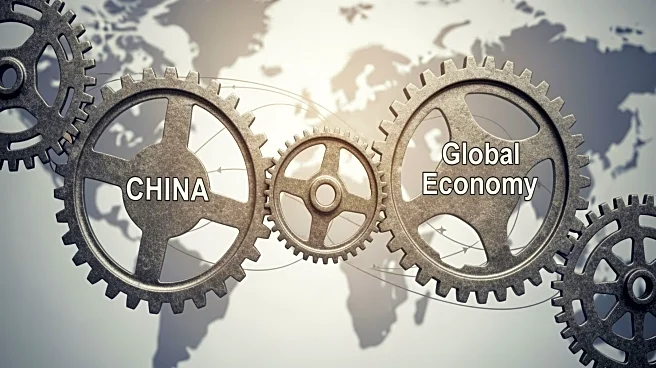What's Happening?
In a joint appearance, U.S. Trade Representative Jamieson Greer and Treasury Secretary Scott Bessent criticized China's plans to restrict rare earth exports, labeling it as 'economic coercion' and a 'global
supply chain power grab.' Bessent warned that if China continues to be an unreliable partner, global decoupling may occur. Despite the harsh rhetoric, U.S. officials left room for negotiation, questioning the feasibility of China's export controls. The restrictions affect materials crucial for tech manufacturing, posing challenges for U.S. industries reliant on these resources.
Why It's Important?
China's dominance in rare earth processing is a strategic vulnerability for the U.S., impacting industries from automotive to electronics. The potential decoupling from China could lead to significant shifts in global trade dynamics, affecting supply chains and economic relations. The U.S. response, including potential tariffs and export controls, could escalate tensions further, impacting businesses and consumers through increased costs and supply chain disruptions.
What's Next?
Negotiations between the U.S. and China will be crucial in determining the future of trade relations. The U.S. may implement additional tariffs and export controls, affecting industries reliant on Chinese materials. The global community will be watching closely, as these developments could lead to broader economic and geopolitical shifts.
Beyond the Headlines
The trade tensions underscore the geopolitical complexities of global supply chains, particularly in the tech sector. The reliance on rare earth minerals highlights the strategic importance of these resources, potentially leading to shifts in global trade policies and alliances. The U.S. response may also influence international perceptions of economic coercion and supply chain management.









